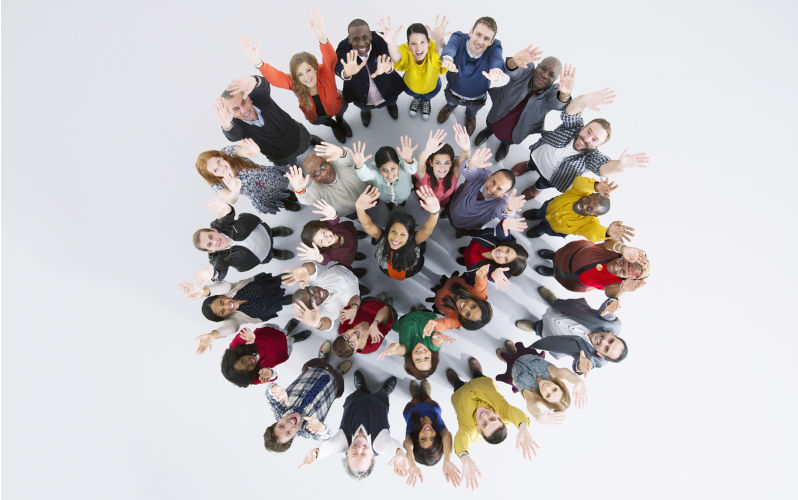Weathering the storm: support for multiculturalism resists politicians frenzied divisiveness
February 15, 2024
Reading the latest Scanlon Foundation social cohesion report makes you aware that there are two quite distinct images of Australia. One totally dark and doom laden is depicted in the mass and social media and the other clear-eyed about both serious problems and opportunities is depicted in the 2023 Scanlon Foundation annual Mapping Social Cohesion report.
This is not to say that the Social Cohesion report doesnt highlight immediate and growing problems such as peoples concerns about the precarious and uncertain social environment in Australia. But it does provide some evidence for reasons for optimism on socio-cultural issues which balance out the many negatives from culture wars, political divisiveness and the impacts of decades of so-called reform.
The 2023 report, released in November last year, drew on the responses of almost 7500 people, supplemented by 251 targeted surveys with respondents from India, the Middle East and African backgrounds plus some in depth qualitative interviews with people who have migrated to Australia over the years.
The 2022 report remarked that social cohesion appeared to be at an important juncture with declining indicators after a COVID-related spike in 2020. Now social cohesion has declined by 13 points since 2020.
Yet there is continuing support for multiculturalism and diversity. For instance, 78% of respondents agree that accepting immigrants from many different countries makes Australia stronger; 89% agree that accepting migrants from different countries has been good for Australia; and 86% agree that immigrants are generally good for our economy.
The level of support does drop for immigrants from India, Ethiopia, Lebanon, China, Iraq and Sudan. On the other hand, however, only 27% expressed negative views about Muslims while 16% expressed negative views towards Christians. Moreover, the proportion of negative attitudes towards people born in China and Muslims has declined. Scott Morrison may have been busting to go to war with China but positive attitudes to people born in China have gone from 52% to 61% in the latest survey.
While most of us are comfortable with multiculturalism there is obviously still a problem with some hard-core opponents as 18% one in six of respondents said they had experienced discrimination in the past 12 months because of their skin colour, ethnic origin or religion.
On other matters things are different. The economy is the number one concern for many people but climate change and global conflict weigh heavily on the minds of Australians. In 2023 48% thought that economic problems are Australias most important problems with 62% of respondents saying economic and housing affordability were Australias most important problems. At the same time, 39% are very concerned about climate change (no change on last year) and two thirds are quite concerned.
Between 2020 and 2023 people who were satisfied or very satisfied with their finances declined from 73% to 61% and one in 10 went without meals while two in 10 had problems paying their rent or making mortgage payments.
Overall ,79% reported a high degree of happiness despite cost-of-living pressures. However, 60% of people who said they were poor or struggling to pay bills described themselves as unhappy or very unhappy. Single parent families are most likely to feel isolated from others often or most of the time. Needless to say, young adults are also more likely to report personal and financial stress.
The report illustrates the price we have paid for decades of neo-liberalism with declines in social cohesion; growing concern about economic inequality and fairness; and declining belief in the fair go. Since 2013 the belief that Australia is a land of economic opportunity has declined by 16% albeit at 63% still a majority of people.
Trust in government has declined; concern for inequality is contributing to a declining sense of national pride and belonging; and there are even small declines in a sense of neighbourhood belonging.
Despite all this, there is a message in the Mapping Social Cohesion work that, despite the frenzied divisiveness of Australian politics and poisonous social media and propagandist media outlets, there is hope!
That hope is what was once the Australian hope a hope summed up by the Scanlon Foundations aspiration to see Australia advance as a welcoming, prosperous and cohesive nation particularly related to the transition of migrants into Australian society.
The philosophy and methodologies behind the Scanlon Institute research and activities are characterised by the recognition that social cohesion is a process rather than an outcome a process to be continued as opposed to an end point or destination. It also recognises that social cohesion crosses different spheres of public life such as economic, political and socio-culture.
It puts this into practice in projects in local communities as well as through its research.
But to achieve that we need a few political leaders, business leaders, community groups and others to get onboard; fix the problems which have caused the declines in cohesion; and start thinking about our national priorities rather than their own.
A big ask? Particularly when we know Australias media and social media users are not going to help much. But we were once a country where a vision wasnt some jargon-filled management gobbledygook inserted in private and public sector corporate plans but something actually aspirational. Perhaps we can be again.
For more on this topic, P&I recommends:

